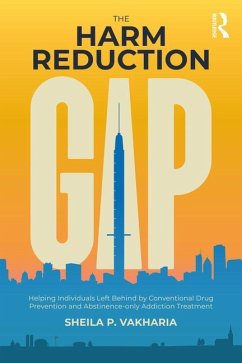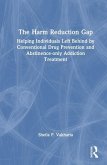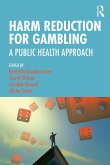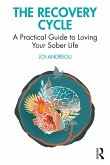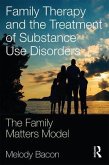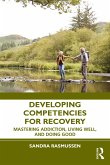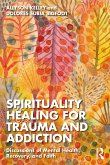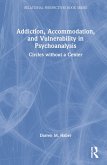This long-awaited book teaches how harm reduction can be a safety net for people with substance use disorders that our current addiction treatment rejects, abandons, and leaves behind.
Harm reduction is an approach to helping people who engage in high-risk activities to develop the skills and strategies to keep them and their communities safe. This can include the provision of sterile equipment, low-threshold and low-barrier care, and the acceptance of non-abstinence goals in treatment. In this novel guide, Dr. Vakharia discusses the shortcomings of the dominant "Just Say No" drug prevention messages and abstinence-only treatment approaches, introduces harm reduction strategies and technologies borne from people who use drugs themselves, and suggests various policy options available as alternatives to the current policies that criminalize drugs, drug-using equipment, and the settings in which people use drugs. The final chapter calls on the reader to destigmatize drug use and support efforts to reform our drug policies.
By highlighting the large gap in our current approach to substance use - the harm reduction gap - this book is the first step for those interested in learning more about the limitations of our current approach to drug use and how to support local efforts to ensure people who use drugs and their communities can stay safe.
Harm reduction is an approach to helping people who engage in high-risk activities to develop the skills and strategies to keep them and their communities safe. This can include the provision of sterile equipment, low-threshold and low-barrier care, and the acceptance of non-abstinence goals in treatment. In this novel guide, Dr. Vakharia discusses the shortcomings of the dominant "Just Say No" drug prevention messages and abstinence-only treatment approaches, introduces harm reduction strategies and technologies borne from people who use drugs themselves, and suggests various policy options available as alternatives to the current policies that criminalize drugs, drug-using equipment, and the settings in which people use drugs. The final chapter calls on the reader to destigmatize drug use and support efforts to reform our drug policies.
By highlighting the large gap in our current approach to substance use - the harm reduction gap - this book is the first step for those interested in learning more about the limitations of our current approach to drug use and how to support local efforts to ensure people who use drugs and their communities can stay safe.
"Dr. Vakharia gives an easy-to-follow explanation of harm reduction and shows that we can do so much more to keep our communities safe and healthy. She defines the concepts, terms, and philosophy of harm reduction in a digestible way- a rare feat for such a complex topic. Weaving in her real-life experience as a product of DARE drug prevention, then a substance use treatment counselor, and, later, a harm reduction provider, the reader witnesses her transformation and is transformed too. Dr. Vakharia shows that there are multiple paths to helping our loved ones; we must be open to the possibilities."
Kassandra Frederique, executive director, Drug Policy Alliance, USA
"The best way to protect young people from getting into trouble with drugs, and to save lives and help communities that are already devastated by drugs, is to bridge the gap between ignorance and fear of drugs and their use spiraling out of control. Dr. Sheila Vakharia brings together her own life as a youth in the era of DARE drug education scare tactics, her experience as a counselor in drug treatment, and her mastery of drug policy to clearly argue that harm reduction bridges that gap. In this very readable and intelligent book, she lays out the ways that harm reduction can help individuals, families, and communities be knowledgeable and healthy in our relationship with intoxicating substances."
Jeannie Little, LCSW, co-founder, Harm Reduction Therapy Center, USA; co-Author of Practicing Harm Reduction Psychotherapy, 2nd ed., and Over the Influence, the Harm Reduction Guide to Controlling Your Drug and Alcohol Use, 2nd ed.
"A smart, compassionate and highly readable introduction to a better way of understanding and managing drugs and drug-related problems. Sheila Vakharia has written a one-of-a-kind book that meets the reader where they are and doesn't just leave them there. She brings them to harm reduction."
Maia Szalavitz, author of Undoing Drugs: How Harm Reduction Is Changing the Future of Drugs and Addiction, author of New York Times Bestseller Unbroken Brain: A Revolutionary New Way of Understanding Drugs, and contributing opinion writer for the New York Times
"From the origins of the term "heroin" to the ongoing commitment to prohibition, Sheila Vakharia provides an easy-to-read and accessible explanation about why the ongoing War on Drugs is failing and a description of the hope and effectiveness offered by harm reduction approaches to substance use in the US. At a time when more people are dying from substance use causes, Vakharia makes the case for harm reduction effectiveness, breadth of potential impact, and practicality. Readers of Vakharia's Harm Reduction Gap will come away with more knowledge, insight, and hope that there are available interventions and strategies that can address our most pressing substance use problems."
Ricky N. Bluthenthal, PhD, professor, Department of Populations and Public Health Sciences, Keck School of Medicine, University of Southern California, USA and founding board member of the National Harm Reduction Coalition
"The Harm Reduction Gap makes a compelling case on behalf of everyone whose needs are not met by directives to abstain from drug use. It analyzes the origins and evolution of the drug war, and our "two-tier system of 'criminals' and 'patients.'" It explains the failings and limitations of treatment models, with memorable examples from the author's personal experience. And it convincingly shows why harm reduction-as a set of strategies, a mindset and a movement-must lead the response to the overdose crisis and wider injustices. The book is highly approachable despite the complexity of its wide-ranging themes. Both newcomers and veterans of the field will find it invaluable."
Will Godfrey, founding editor-in-chief, Filter
"A very engaging read from Dr. Vakharia on the origins and implications of US drug policy. Readers will be informed on the current landscape of Harm Reduction, as well as the failed policies that have led to our current "overdose crisis." I highly recommend this to those wanting to educate themselves on the subjects."
Tracey Helton Mitchell, MPA, author of The Big Fix: Hope After Heroin and harm reduction activist
"Sharp, sober, and pragmatic, The Harm Reduction Gap is essential reading for anyone who wants a concise and jargon-free primer on the complex and often misunderstood field of harm reduction. Sheila Vakharia's debut book lays out the philosophy, practice, and necessity of harm reduction in a clear, persuasive, and engaging style. Summarizing and synthesizing decades of scientific literature on the subject, The Harm Reduction Gap is an important contribution to a field that is in desperate need of smart thinkers like Vakharia. If you want to know what harm reduction really means, her book has the answer."
Zachary Siegel, freelance journalist featured in The New York Times Magazine, The Washington Post, Harper's, and The New Republic
"Sheila Vakharia provides an important perspective on harm reduction and draws on her work as a clinical social worker to weave a compelling narrative. With a compassionate viewpoint, Sheila has written an important book that will educate the reader about harm reduction and caring for our communities."
Regina LaBelle, director of the Addiction Policy Initiative at The O'Neill Institute at Georgetown Law, former acting director in the Office of National Drug Control Policy (ONDCP) during the Biden Administration, and former chief of staff at the ONDCP during the Obama Administration
"Dr. Vakharia has written a valuable resource examining the history of the War on Drugs, its implications for people seeking help with substance use and the evolution of the dominant abstinence only perspective. The Harm Reduction Gap provides a concise respectful yet cogent examination of the current treatment system and its limitations and biases. Importantly, it clearly explains basic foundations and philosophy of harm reduction and cautions ways harm reduction can be both misunderstood and poorly implemented. While helpful to anyone unsure of what harm reduction is, The Harm Reduction Gap is a must read for providers of substance use treatment and anyone involved with the care of people who use drugs. Furthermore, the extensive bibliography is an incredible tool for anyone who wants to examine harm reduction more deeply."
Albie Park, co-founder of Harm Reduction Works and HRH413
"The Harm Reduction Gap is an essential primer on sensible drug policy and compassionate service provision. Beginning with emphasizing intentionality around the words we use, Dr. Sheila Vakharia walks readers through the necessity for and efficacy of harm reduction. Pulling from her own pathway towards uncovering the intuitive nature of harm reduction, Vakharia then provides frameworks and tools to help readers utilize this critical approach, thereby closing the harm reduction gap."
Justice Rivera, collector/author of Towards Bodily Autonomy and partner with Reframe Health and Justice Consulting
"Finally, we have the book to fill the knowledge gap- useful for readers new to harm reduction and seasoned practitioners alike. Sheila Vakharia has crafted a thoughtful and thorough harm reduction primer, carefully guiding us through a tangled, politicized landscape with humanity, pragmatism, and ease. The Harm Reduction Gap incorporates a historical analysis with a considered review of the science and strategies, laying out the 'what,' 'why,' and 'how' for harm reduction. Vakharia offers a long overdue and much-needed contribution to help all of us - family and friends, students, providers, and policy-makers - consider how we respond to drug use in this country."
Daliah Heller, PhD, MPH, vice president, Vital Strategies, and former assistant commissioner, NYC Department of Health and Mental Hygiene, USA
"In the era of the enormous overdose mortality in the US, Sheila's book clearly lays out the full set of harm reduction tools available, and the most effective ways they can be implemented. This important primer articulates how the war on drugs and abstinence-only treatment have continued to exclude thousands of people who use drugs from living safer and healthier lives. Using her own journey navigating the New York state drug-treatment system from abstinence-only provider to the DPA's Deputy Director of Research and Academic Engagement, she explores core tenets of this life-saving theory and practice."
Kasia Malinowska-Sempruch, DrPH, MSW, director, Drug Policy, Open Society Foundations
"With the formal War on Drugs now over 50 years old, we've all spent most of our lives consuming a steady diet of one-sided "Just Say No" messaging. Even though the data supports harm reduction approaches, it's still a difficult paradigm for many people to accept. The Harm Reduction Gap addresses this issue head-on. Dr. Vakharia deftly weaves compelling and clear evidence with her extremely relatable story of starting out as a DARE graduate, an addiction counselor and drug court advocate, and growing to where she is today - a researcher and national thought leader in harm reduction. The Harm Reduction Gap is an excellent pick for anyone wanting a clear and concise primer on harm reduction - whether for personal reading, for class reading, or for harm reduction veterans who want to better communicate what's in our heads to the broader community."
Claire Zagorski, MSc, LP, adjunct faculty at the Pharmacotherapy Education and Research Center at the UT Health San Antonio Long School of Medicine.
"If the intent of America's drug control policy is to save lives, we have sadly failed because harm reduction has neither been understood nor invested in across the United States in the way that it is needed. Dr. Vakharia's work in The Harm Reduction Gap is critically important in understanding how America's war on drugs perpetuates death, disease, and addiction by criminalizing a public health issue. This book should be widely distributed to parents, policing professionals, and medical providers who all share the goal of protecting our children and our community's health and safety."
Diane Goldstein, executive director, Law Enforcement Action Partnership
"We wish we'd had this book twenty years ago to give friends and family new to harm reduction! Concise without skimping on nuance, straight-talking without underestimating the reader's intelligence, with full marks for honoring harm reduction's intersectional history and present, this is the perfect introductory text for this movement. Sheila Vakharia is an unwavering supporter of people who use drugs and we cannot think of anyone better to do the delicate work of 101 harm reduction and drug policy reform education."
National Survivors Union Leadership Team
Dr. Sheila Vakharia expertly captures the core essence of harm reduction's values, history and significance, drawing on her own transformative journey from abstinence-based drug counsellor to global harm reduction advocate. "The Harm Reduction Gap" is more than a highly accessible and engaging resource, it is also 'call-to-arms' that invites the reader to challenge assumptions about drugs and the people who use them, and to question the very foundations of harmful drug policies based on zero-tolerance ideology. This book is essential reading for anyone interested or engaged in harm reduction policy and practice in the USA and beyond.
Ann Fordham, executive director, International Drug Policy Consortium, UK
"Dr. Vakharia's own personal experience and the evidence she presents in this book, beautifully exposes the decades of propaganda that the world has be subject to when it comes to certain drugs. She incisively describes the harm reduction gap as one that has left millions and millions of people without the knowledge and skills to keep themselves and others safe. Tracing the xenophobic and racist origins of modern-day drug prohibition which has led to the violent oppression of Global Majority people in many Global North countries, was the driver for Nixon's very own "War on Drugs" and Reagan's "crack-cocaine epidemic", this book is a must read for those wanting to understand how we got to where we are. Vakharia also ensures we understand that harm reduction is more than a set of evidence based public health interventions, it is a philosophy and a movement, with, as the author says, "unconditional care with deep roots in mutual aid and a commitment to building power within communities through shared knowledge and resources" at its core. The Harm Reduction Gap is critical reading for those who want to learn about some of the solutions we need to dismantle the drug war."
Niamh Eastwood, executive director, Release, UK
"Vakharia explores harm reduction as a community-centered public health measure, exposing the obstructions of misinformed policies. The Harm Reduction Gap presents pragmatic alternatives rooted in mutual aid, illustrating their potential to improve safety and well-being for individuals and communities"
Jim Duffy, co-founder & director, Smoke Works, US
"Dr. Vakharia's book couldn't be timelier, with harm reduction under fire across North America, and only because people are mostly subject to bad information and haven't had a chance to actually learn about it, as she effectively points out in this refreshing counter. The Harm Reduction Gap provides an accessible primer on not only principles of harm reduction, but the evidence behind it, as both public health and a form of social justice that improves our communities for everyone. She traces Drug War history, to show how its long history of using propaganda to cover up its failures continues into the present day, and how the harms impact everyone. Using her own firsthand experience and scientific communication skills, her book makes harm reduction knowledge accessible and should be essential reading for the ongoing discussions on these topics. If we heed Dr. Vakharia's carefully written lessons from past and present we could stop repeating the same mistakes and repeatedly failing our fellow citizens and ourselves."
Ryan Marino, MD, associate professor, Case Western Reserve University School of Medicine
Kassandra Frederique, executive director, Drug Policy Alliance, USA
"The best way to protect young people from getting into trouble with drugs, and to save lives and help communities that are already devastated by drugs, is to bridge the gap between ignorance and fear of drugs and their use spiraling out of control. Dr. Sheila Vakharia brings together her own life as a youth in the era of DARE drug education scare tactics, her experience as a counselor in drug treatment, and her mastery of drug policy to clearly argue that harm reduction bridges that gap. In this very readable and intelligent book, she lays out the ways that harm reduction can help individuals, families, and communities be knowledgeable and healthy in our relationship with intoxicating substances."
Jeannie Little, LCSW, co-founder, Harm Reduction Therapy Center, USA; co-Author of Practicing Harm Reduction Psychotherapy, 2nd ed., and Over the Influence, the Harm Reduction Guide to Controlling Your Drug and Alcohol Use, 2nd ed.
"A smart, compassionate and highly readable introduction to a better way of understanding and managing drugs and drug-related problems. Sheila Vakharia has written a one-of-a-kind book that meets the reader where they are and doesn't just leave them there. She brings them to harm reduction."
Maia Szalavitz, author of Undoing Drugs: How Harm Reduction Is Changing the Future of Drugs and Addiction, author of New York Times Bestseller Unbroken Brain: A Revolutionary New Way of Understanding Drugs, and contributing opinion writer for the New York Times
"From the origins of the term "heroin" to the ongoing commitment to prohibition, Sheila Vakharia provides an easy-to-read and accessible explanation about why the ongoing War on Drugs is failing and a description of the hope and effectiveness offered by harm reduction approaches to substance use in the US. At a time when more people are dying from substance use causes, Vakharia makes the case for harm reduction effectiveness, breadth of potential impact, and practicality. Readers of Vakharia's Harm Reduction Gap will come away with more knowledge, insight, and hope that there are available interventions and strategies that can address our most pressing substance use problems."
Ricky N. Bluthenthal, PhD, professor, Department of Populations and Public Health Sciences, Keck School of Medicine, University of Southern California, USA and founding board member of the National Harm Reduction Coalition
"The Harm Reduction Gap makes a compelling case on behalf of everyone whose needs are not met by directives to abstain from drug use. It analyzes the origins and evolution of the drug war, and our "two-tier system of 'criminals' and 'patients.'" It explains the failings and limitations of treatment models, with memorable examples from the author's personal experience. And it convincingly shows why harm reduction-as a set of strategies, a mindset and a movement-must lead the response to the overdose crisis and wider injustices. The book is highly approachable despite the complexity of its wide-ranging themes. Both newcomers and veterans of the field will find it invaluable."
Will Godfrey, founding editor-in-chief, Filter
"A very engaging read from Dr. Vakharia on the origins and implications of US drug policy. Readers will be informed on the current landscape of Harm Reduction, as well as the failed policies that have led to our current "overdose crisis." I highly recommend this to those wanting to educate themselves on the subjects."
Tracey Helton Mitchell, MPA, author of The Big Fix: Hope After Heroin and harm reduction activist
"Sharp, sober, and pragmatic, The Harm Reduction Gap is essential reading for anyone who wants a concise and jargon-free primer on the complex and often misunderstood field of harm reduction. Sheila Vakharia's debut book lays out the philosophy, practice, and necessity of harm reduction in a clear, persuasive, and engaging style. Summarizing and synthesizing decades of scientific literature on the subject, The Harm Reduction Gap is an important contribution to a field that is in desperate need of smart thinkers like Vakharia. If you want to know what harm reduction really means, her book has the answer."
Zachary Siegel, freelance journalist featured in The New York Times Magazine, The Washington Post, Harper's, and The New Republic
"Sheila Vakharia provides an important perspective on harm reduction and draws on her work as a clinical social worker to weave a compelling narrative. With a compassionate viewpoint, Sheila has written an important book that will educate the reader about harm reduction and caring for our communities."
Regina LaBelle, director of the Addiction Policy Initiative at The O'Neill Institute at Georgetown Law, former acting director in the Office of National Drug Control Policy (ONDCP) during the Biden Administration, and former chief of staff at the ONDCP during the Obama Administration
"Dr. Vakharia has written a valuable resource examining the history of the War on Drugs, its implications for people seeking help with substance use and the evolution of the dominant abstinence only perspective. The Harm Reduction Gap provides a concise respectful yet cogent examination of the current treatment system and its limitations and biases. Importantly, it clearly explains basic foundations and philosophy of harm reduction and cautions ways harm reduction can be both misunderstood and poorly implemented. While helpful to anyone unsure of what harm reduction is, The Harm Reduction Gap is a must read for providers of substance use treatment and anyone involved with the care of people who use drugs. Furthermore, the extensive bibliography is an incredible tool for anyone who wants to examine harm reduction more deeply."
Albie Park, co-founder of Harm Reduction Works and HRH413
"The Harm Reduction Gap is an essential primer on sensible drug policy and compassionate service provision. Beginning with emphasizing intentionality around the words we use, Dr. Sheila Vakharia walks readers through the necessity for and efficacy of harm reduction. Pulling from her own pathway towards uncovering the intuitive nature of harm reduction, Vakharia then provides frameworks and tools to help readers utilize this critical approach, thereby closing the harm reduction gap."
Justice Rivera, collector/author of Towards Bodily Autonomy and partner with Reframe Health and Justice Consulting
"Finally, we have the book to fill the knowledge gap- useful for readers new to harm reduction and seasoned practitioners alike. Sheila Vakharia has crafted a thoughtful and thorough harm reduction primer, carefully guiding us through a tangled, politicized landscape with humanity, pragmatism, and ease. The Harm Reduction Gap incorporates a historical analysis with a considered review of the science and strategies, laying out the 'what,' 'why,' and 'how' for harm reduction. Vakharia offers a long overdue and much-needed contribution to help all of us - family and friends, students, providers, and policy-makers - consider how we respond to drug use in this country."
Daliah Heller, PhD, MPH, vice president, Vital Strategies, and former assistant commissioner, NYC Department of Health and Mental Hygiene, USA
"In the era of the enormous overdose mortality in the US, Sheila's book clearly lays out the full set of harm reduction tools available, and the most effective ways they can be implemented. This important primer articulates how the war on drugs and abstinence-only treatment have continued to exclude thousands of people who use drugs from living safer and healthier lives. Using her own journey navigating the New York state drug-treatment system from abstinence-only provider to the DPA's Deputy Director of Research and Academic Engagement, she explores core tenets of this life-saving theory and practice."
Kasia Malinowska-Sempruch, DrPH, MSW, director, Drug Policy, Open Society Foundations
"With the formal War on Drugs now over 50 years old, we've all spent most of our lives consuming a steady diet of one-sided "Just Say No" messaging. Even though the data supports harm reduction approaches, it's still a difficult paradigm for many people to accept. The Harm Reduction Gap addresses this issue head-on. Dr. Vakharia deftly weaves compelling and clear evidence with her extremely relatable story of starting out as a DARE graduate, an addiction counselor and drug court advocate, and growing to where she is today - a researcher and national thought leader in harm reduction. The Harm Reduction Gap is an excellent pick for anyone wanting a clear and concise primer on harm reduction - whether for personal reading, for class reading, or for harm reduction veterans who want to better communicate what's in our heads to the broader community."
Claire Zagorski, MSc, LP, adjunct faculty at the Pharmacotherapy Education and Research Center at the UT Health San Antonio Long School of Medicine.
"If the intent of America's drug control policy is to save lives, we have sadly failed because harm reduction has neither been understood nor invested in across the United States in the way that it is needed. Dr. Vakharia's work in The Harm Reduction Gap is critically important in understanding how America's war on drugs perpetuates death, disease, and addiction by criminalizing a public health issue. This book should be widely distributed to parents, policing professionals, and medical providers who all share the goal of protecting our children and our community's health and safety."
Diane Goldstein, executive director, Law Enforcement Action Partnership
"We wish we'd had this book twenty years ago to give friends and family new to harm reduction! Concise without skimping on nuance, straight-talking without underestimating the reader's intelligence, with full marks for honoring harm reduction's intersectional history and present, this is the perfect introductory text for this movement. Sheila Vakharia is an unwavering supporter of people who use drugs and we cannot think of anyone better to do the delicate work of 101 harm reduction and drug policy reform education."
National Survivors Union Leadership Team
Dr. Sheila Vakharia expertly captures the core essence of harm reduction's values, history and significance, drawing on her own transformative journey from abstinence-based drug counsellor to global harm reduction advocate. "The Harm Reduction Gap" is more than a highly accessible and engaging resource, it is also 'call-to-arms' that invites the reader to challenge assumptions about drugs and the people who use them, and to question the very foundations of harmful drug policies based on zero-tolerance ideology. This book is essential reading for anyone interested or engaged in harm reduction policy and practice in the USA and beyond.
Ann Fordham, executive director, International Drug Policy Consortium, UK
"Dr. Vakharia's own personal experience and the evidence she presents in this book, beautifully exposes the decades of propaganda that the world has be subject to when it comes to certain drugs. She incisively describes the harm reduction gap as one that has left millions and millions of people without the knowledge and skills to keep themselves and others safe. Tracing the xenophobic and racist origins of modern-day drug prohibition which has led to the violent oppression of Global Majority people in many Global North countries, was the driver for Nixon's very own "War on Drugs" and Reagan's "crack-cocaine epidemic", this book is a must read for those wanting to understand how we got to where we are. Vakharia also ensures we understand that harm reduction is more than a set of evidence based public health interventions, it is a philosophy and a movement, with, as the author says, "unconditional care with deep roots in mutual aid and a commitment to building power within communities through shared knowledge and resources" at its core. The Harm Reduction Gap is critical reading for those who want to learn about some of the solutions we need to dismantle the drug war."
Niamh Eastwood, executive director, Release, UK
"Vakharia explores harm reduction as a community-centered public health measure, exposing the obstructions of misinformed policies. The Harm Reduction Gap presents pragmatic alternatives rooted in mutual aid, illustrating their potential to improve safety and well-being for individuals and communities"
Jim Duffy, co-founder & director, Smoke Works, US
"Dr. Vakharia's book couldn't be timelier, with harm reduction under fire across North America, and only because people are mostly subject to bad information and haven't had a chance to actually learn about it, as she effectively points out in this refreshing counter. The Harm Reduction Gap provides an accessible primer on not only principles of harm reduction, but the evidence behind it, as both public health and a form of social justice that improves our communities for everyone. She traces Drug War history, to show how its long history of using propaganda to cover up its failures continues into the present day, and how the harms impact everyone. Using her own firsthand experience and scientific communication skills, her book makes harm reduction knowledge accessible and should be essential reading for the ongoing discussions on these topics. If we heed Dr. Vakharia's carefully written lessons from past and present we could stop repeating the same mistakes and repeatedly failing our fellow citizens and ourselves."
Ryan Marino, MD, associate professor, Case Western Reserve University School of Medicine

